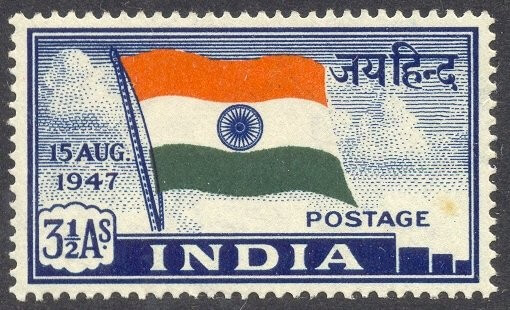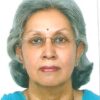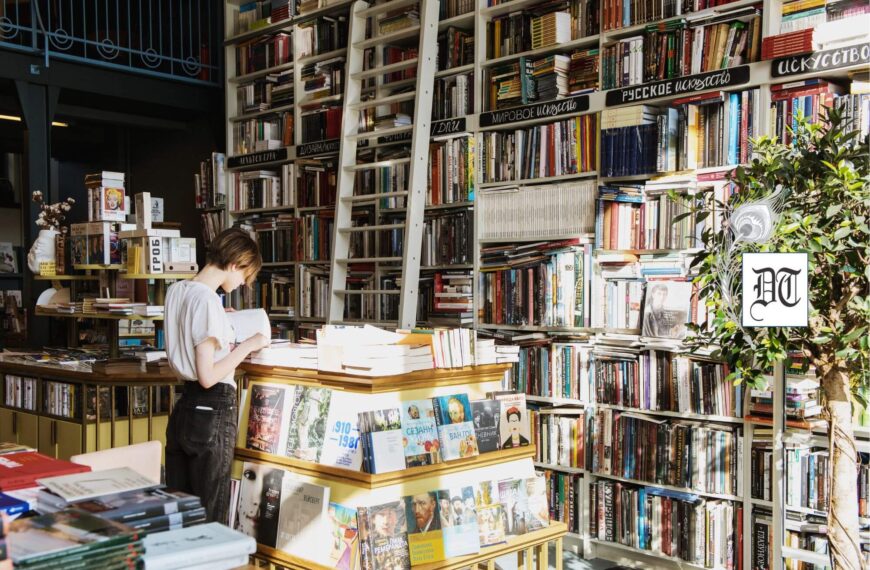Religious dissension partitioned of India in 1947. Two states, Bengal and Punjab, were spliced into two. An entire repertoire of Bengali literature, with its distinct echoes in cinema, documents the agony. Madhumita revisits the land of her ancestors. She shares the collective memory of being uprooted. Talking with her old mother about Dacca, she recreates the horror of that time. Homeless and rootless, millions of people were driven out of their lands. Countless many were killed. Large numbers died on the way. Those who reached India to seek refuge had to battle for their identities. The agony continues for many in Cooper’s Camp, near Kolkata, to this day. Here’s Different Truths’ special feature on the World Refugee Day.
It was a hot summer afternoon. Saturday being my day off from college I was lazing in bed, reading, when the doorbell rang. Outside stood Sundaridi, companion to my 82-year-old mother. “Ma has sent this for you,” she said with a broad grin, as she put out her hand and dangled the yellow cloth bag she held. “What is it?” I could see there was a container within. “Open and see. Espeshal khabar, (special food)” she added, her eyes smiling. “I have helped her.”
“Rasapuli!” I exclaimed. “Yes, it is indeed very special. Thank you, Sundaridi.”
“Tell Ma thankoo, she has made it. Hunnh, see she is so old and still makes all these delicacies for you.” She was clearly proud of my mother.
Rasapuli was my favourite sweet dish. A part of my childhood. Nobody I knew made that dish. Only my mother. Little elliptical dumplings made of ground coconut and semolina cooked in a gravy of kheer, milk boiled till thick and creamy. I finished half of it at one go and called my mother. Payesh and other Bengali sweet dishes were now available in the sweet shops, but not this. I told her how I enjoyed having this after ages.
“You obviously won’t find it in the Kolkata shops. People here don’t know of this delicacy. It’s from our Dhaka. Such things will be lost to the world once we, the old ones pass over.”
“Our Dhaka,” my mother inadvertently said, my mother, who has lived in Calcutta for more than 60 years.
“You still think of Dhaka as your city?”
 “Yes. I was born there. For years people in this city have called us refugees. Despite the fact that I came away from Dhaka long before partition.” She was silent for a few seconds and then added, “Of course, this is my city too. And Bishnupur, my mamabari (maternal uncle’s place) where I came to from Dhaka and where I stayed till I was married.”
“Yes. I was born there. For years people in this city have called us refugees. Despite the fact that I came away from Dhaka long before partition.” She was silent for a few seconds and then added, “Of course, this is my city too. And Bishnupur, my mamabari (maternal uncle’s place) where I came to from Dhaka and where I stayed till I was married.”
‘I’ll come visit you next Saturday. Will you teach me how to make rasapuli?”
And I went over to see her the following week, with a big pot of Mishti Doi (sweet curd, a Bengali delicacy) that she so loved, determined to learn in her kitchen and listen to her story of her childhood. Ma was Ma, had always been just my mother, since I gained consciousness about my identity, years back. I never gave a thought to the fact she was a child once and had a past before she became Baba’s wife and my mother.
***
My grandmother, who had studied up to class 9 and was a surgeon’s wife, came away from Dhaka to her parental home in Bishnupur with her children, two boys and a girl, when her husband passed away. Her husband’s elder brother did nothing worthwhile for a living and expectedly, there was bad blood between the two families. The two patriarchs became sworn enemies, one jealous of the successful other and the other looking down upon the incompetent loser. The elders of the two families did not speak to one another, my mother however being best friends with her cousin, Rekha, a year older to her.
“Did they divide the house into two sections, building a wall within?” I interjected, suddenly remembering Amitav Ghosh’s The Shadow Lines, a text I taught in college and finding a similarity between the two tales of two families in pre-independence undivided Bengal. No, there was no wall, but the two families lived as strangers under a single roof. And that was what my grandmother found unbearable once she was widowed. She left Dhaka with her three children and settled down at Bishnupur, at her parents’ home where she lived with her mother and two brothers.
***
It was late 1945. The World War II had just ended. But there was an undercurrent of animosity growing in East Bengal, between people of the two faiths, having lived peacefully all along before. My mother’s aunt would, all of a sudden one day, forbid her daughter’s friend Amina to enter their house and ordered that she would not go to theirs. Rekha would weep inconsolably and would be beaten up to be silenced.
Her mother died later. While fleeing from Dhaka in September 1947. She could not reach the land where she headed to with her family, a land where she thought she would feel safe in the sanctified protection of her religious faith.
My mother’s Jethamashai, my grandfather’s elder brother had refused to leave his house in the wake of the rising turmoil till one day, when people rushed in to his house, in the dead of night, with burning torches and threatened to burn down the house. “Kattamashay, bhalo kotha shonen, heikhan thika polay zaan. Heida ehon aar apnago dyash nai. Zaan,zaan giya, apnago Hindu razye soila zaan, (Go, sir, listen to me, run away from here. This is no longer your country. Go, go to your Hindu land),” his neighbour had warned in a threatening voice.
And he had left the next morning, with his family. Four members embarked on the journey from Dhaka by boat. Three landed in Calcutta finally. A widower with his two children. Rekha’s mother, squashed by hordes of people, had died of a heart attack on the steamer. The family knew no one in the new city and the haughty patriarch was too proud to get in touch with my grandmother and his nephews. The family was sucked into the marginalised rubric of the big city Calcutta, to fend for themselves, to seek out a shelter, to find a livelihood to be alive.
Rekha narrated their ordeals to her cousin and best friend, my mother, years later. When she too was married and had children of her own.
“Rekha mashi had such a sad life. Why didn’t you tell us about her past before, Ma? We too never wanted to know about your sister.”
“Rekha didn’t want anyone to know. She loathed talking about it. She wanted to rub the Refugee stamp off herself, off her identity.”
Tell me more, I said. And Ma narrated Rekha’s story.
***
It was a nightmare coming away from Dhaka. Fleeing from her home, leaving her memories and all things dear since childhood behind, leaving for good, tearing away from the roots. There was fire everywhere. Houses were set on fire, in some homes people were burnt alive. They had set sail at night. From the boat the land looked like burning ghats, with leaping flames reddening the sky, as shrill cries of pain and horror sliced through the darkness of the night. There were throngs of people jostling for space on the boat. All sailing on in the hope of a new life, security and peace.
Down Buriganga River they went, a river that they had swum in, a river that took them to nearby places on social and professional visits. A river they called their very own. A river to lose forever, now. The ferry boat took them to the steamer that would take them to Goalondo Ghat, situated on the southern bank of the Padma, at the junction of the Padma, the Buri Ganga, and the Brahmaputra. Next, from Goalondo by train to Calcutta they would go.
On the steamer, among many, was travelling a newly-wed couple. The young bride, despite the blush of new vermilion smeared on the parting of her hair and her forehead, looked ashen. When she had walked around the fire along with the man who she would share her life with, little did she know that her life would undergo a sea change. Not from one home to another but she would have to go away from her homeland forever. The husband stood near her holding on to a tin suitcase, his new white dhoti soiled with mud and silt of the Padma, his face expressionless.
Besides Rekha’s mother, two children and an old man too died on the way. Shrieks and cries rent the air as the dead bodies were inspected and disposed of in the swirling waters of the mighty river. Like lambs to the slaughter house the passengers stood or sat, huddled in a hushed silence.
The wide river looked like a sea that spread to infinite space and time. What lay on the other side of the journey was unknown, only a glimmer of hope kept their faint battered hearts beating, hope of security, of protection provided by a country that had a majority of people of their religious faith.
“By God’s grace we are not refugees. But I cannot help but think of myself as one too. I think of the others. People I knew when I was a child. People near and dear to us back at home, that was no longer to be called home, a place that turned overnight into a foreign country. And this country was not prepared to receive the millions of people running away from their homeland with open arms. Millions of people went missing. Among those who arrived, many stayed on the railway platforms, in slums, on the pavements. Many perished. The fortunate ones moved to the outskirts of the city and settled on lands acquired by force and made makeshift huts. Certain areas in today’s Kolkata are still called refugee colonies, don’t you know?”
She had a distant look in her eyes and after a pause, she continued. “This country gave them refuge and refugees they have been labeled ever since. It took them years to be rehabilitated into the mainstream of life in Calcutta.” Ma’s voice had grown heavy. “Your Rekhamashi is one of the fortunate ones. Few were as fortunate. Remember Ritwik Ghatak’s films? That is the world these refugees found themselves in once they landed in this country with a lot of hope.”

I rued, “And the refugees are still there. I have read about Coopers Camp. They live in dire conditions there, a dismal life, in abject poverty. The camp a stark contrast to the developing city. Just a couple of hundred kilometers from this our City of Joy. So ironic, isn’t it? From 1947 to 2016, almost seventy years they have been living here and they are called refugees.
“I have my roots in Dhaka. I am in this city for fifty years. Am I a refugee too, Ma?”
©Madhumita Ghosh
Pix for Net.




 By
By
 By
By
 By
By
 By
By